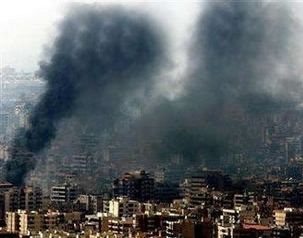While the war between Israel and Hezbollah raged in Lebanon and Israel last summer, it became clear that media coverage had itself started to play an important role in determining the ultimate outcome of that war. It seemed clear that news coverage would affect the course of the conflict. And it quickly transpired that Hezbollah would become the beneficiary of the media's manipulation. A close examination of the media's role during the 2006 Israel-Hezbollah war in Lebanon comes now from Harvard University's Kennedy School of Government, in an analysis of the war published in a paper whose subtitle should give pause to journalists covering international conflict: "The Israeli-Hezbollah War of 2006: The Media as a Weapon in Asymmetrical Conflict." Marvin Kalb, of Harvard's Shorenstein Center on the Press, Politics and Public Policy, methodically traces the transformation of the media "from objective observer to fiery advocate." Kalb painstakingly details how Hezbollah exercised absolute control over how journalists portrayed its side of the conflict, while Israel became "victimized by its own openness." The lessons from the Harvard paper go well beyond historic analysis. Kalb's thoroughly and persuasively documented case points to the challenges to journalists in future "asymmetrical" conflicts in which a radical militia provides access only to journalists agreeing to the strictest of rules.
How the Media Partnered With Hezbollah: Harvard’s Cautionary Report

